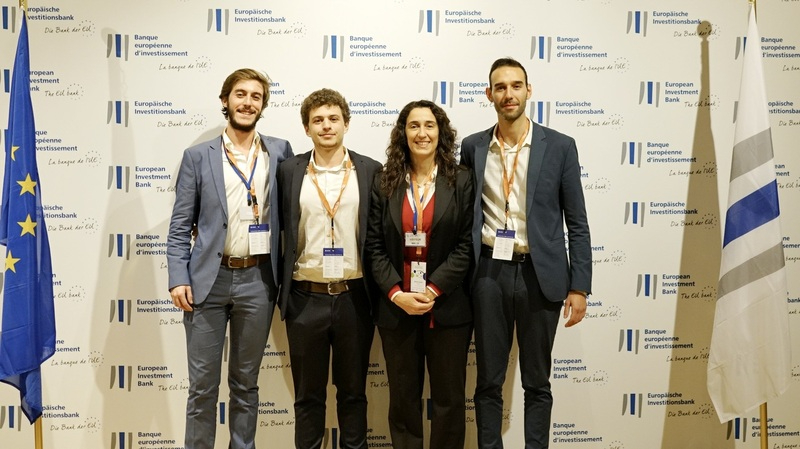News

The European Ethics Bowl featured a discussion of business ethics standards. The Iscte Business School team prevailed in the final round of the competition despite having faced numerous technical challenges over the course of three rounds. "Participation in this European competition helped to enhance the 'know-how' of our students and highlight the caliber of preparation that our programs enable," says Ana Licia Martins, vice-dean for the area of education and innovation at the Iscte Business School.

The European Ethics Bowl, a competition that fosters discussion of ethical issues related to the business sector and was founded by the European Investment Bank Institute, Goethe University Frankfurt, Université Paris Dauphine, and the School of Economics and Business at the University of Ljubljana, was won by the Iscte Business School (IBS). Students majoring in economics Pedro Vaz, António Carlos Dias, and Guilherme Bica represented Portugal in the competition's final on December 9 at the Banco Europeu de Investimento in the city of Luxembourg under the theme "standardizing business world."
"This victory demonstrates our students' abilities and strengthens the international reputation of the IBS," says Ana Lcia Martins, vice dean for teaching and innovation at the ISTE Business School, who observed the students' participation in the test. "Our students' participation in this European competition helped to broaden their "know-how," as they had the chance to put some of the soft skills they learned in class, such a critical mindset, debate abilities, and argumentation ability, to use.
Three competitions—the national, semifinal, and final—that were place on various dates each evaluated the students from the Iscte School of Management. Each round of the competition had teams facing an ethical dilemma, which they had to develop a position on, present, and discuss with other teams. In the final round of the European Ethics Bowl, there were still two hours of student debate, followed by a period of questions and answers among the three competing teams.
We remained true to our ethical principles and decided against adopting the more widely held and politically correct position while presenting our points of view, according to Pedro Vaz. Instead, we acknowledge that structural issues exist and provide solutions to the problems that were presented to us.
The IBS team had to deal with issues related to "Padronizaço do Ensino Superior" during the final round of the European Ethics Bowl. Three students from the Iscte Business School disagreed when asked whether there should be gender diversity or pro-minority quotas for admission to higher education because they view this as a way to address a social issue rather than a standalone solution.
The student Guilherme Bica claims that "discourse fluidity and a strong capacity for argumentation were the deciding factors in winning this first prize." We always base our arguments on scientific literature, which required a significant amount of research and investigation.
António Carlos Dias highlights the value of the knowledge exchanged as a result of the experience: "We acquired a variety of perspectives on ethics in general and, in particular, in the business sector. This was extremely enriching because it allowed us to discuss these perspectives with colleagues from other European countries who live in very dissimilar contexts to our own."
In addition to Iscte Business School students, the European Ethics Bowl final brought together students from Sofia University "St. Kliment Ohridski" and the University Paris Dauphine in France.
Along with students from the Iscte Business School, the European Ethics Bowl final brought together students from the Sofia University "St. Kliment Ohridski" in Bulgaria and the Université Paris Dauphine in France.
Robert Ladenson, a distinguished professor at Illinois' Institute of Technology in the United States of America, founded the Ethics Bowl in 1993. The first interschool competition that served as inspiration for the European competition took place in 1997.

